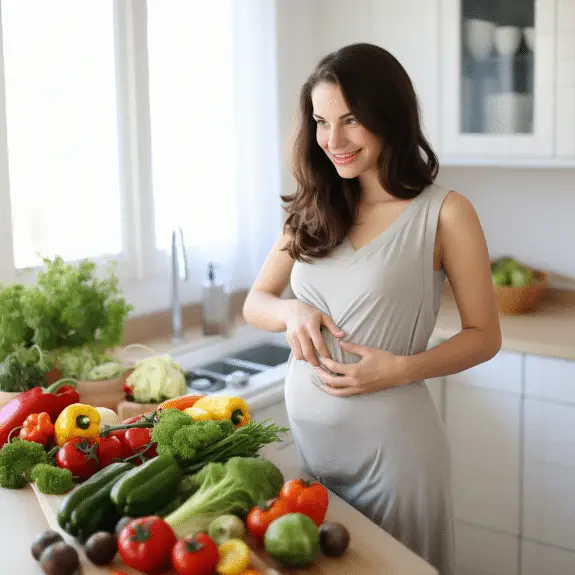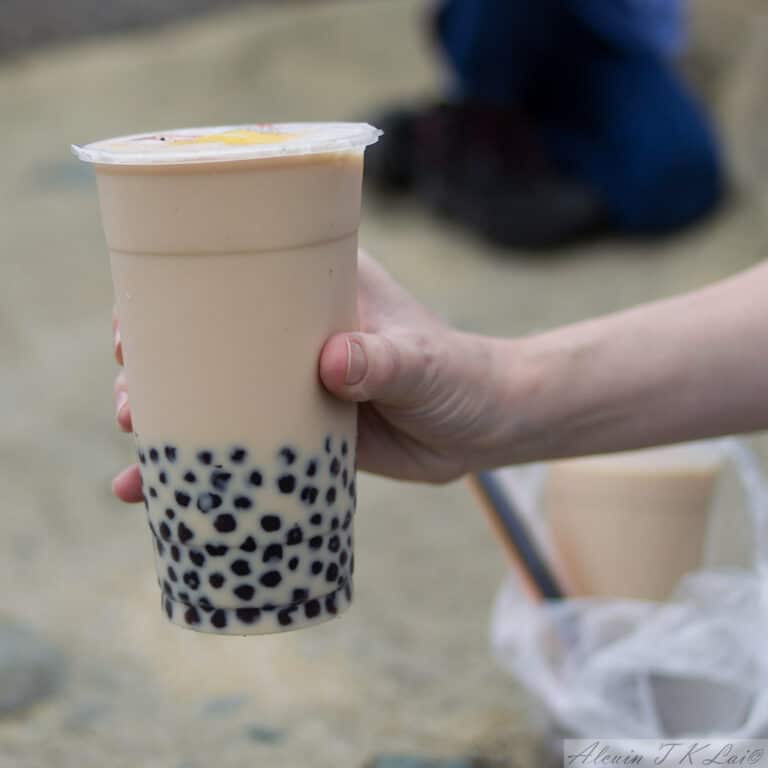Nurturing a Healthy Pregnancy: Essential Dietary Guidelines

Maintaining a healthy pregnancy diet is crucial for the well-being of both you and your baby. Understanding the foods to avoid during this time is essential to ensure a safe and successful pregnancy.
Key Takeaways:
- Avoid seafood high in mercury, such as swordfish and shark.
- Avoid raw, undercooked, or contaminated seafood.
- Ensure meat, poultry, and eggs are thoroughly cooked.
- Avoid unpasteurized foods, including soft cheeses and juices.
- Limit caffeine intake and avoid herbal tea and alcohol completely.
Seafood high in mercury
Seafood can be a beneficial part of a balanced diet, but it is important to be cautious when consuming certain types of seafood during pregnancy. One of the key concerns is the level of mercury in seafood, as high levels of mercury can be harmful to the developing fetus. Mercury is a toxic metal that can affect the nervous system and brain development of the baby.
Some types of seafood that are known to be high in mercury and should be avoided during pregnancy include swordfish, shark, king mackerel, and tilefish. These fish tend to be larger and have longer lifespans, which means they accumulate higher levels of mercury in their bodies over time. It is best to replace these high-mercury seafood options with safer alternatives such as salmon, shrimp, and canned light tuna.
| Type of Seafood | Mercury Level |
|---|---|
| Swordfish | High |
| Shark | High |
| King Mackerel | High |
| Tilefish | High |
| Salmon | Low |
| Shrimp | Low |
| Canned Light Tuna | Medium |
It is important to remember that while seafood offers many health benefits, pregnant women should be cautious and make informed choices to ensure the well-being of themselves and their unborn babies. By avoiding seafood high in mercury and opting for safer alternatives, you can continue to enjoy the nutritional benefits of seafood while minimizing potential risks during this crucial time.
Raw, Undercooked, and Contaminated Seafood: Foods to Avoid While Pregnant
Raw, undercooked, or contaminated seafood can pose significant health risks to both you and your baby during pregnancy. It is important to be aware of the potential dangers associated with consuming certain types of seafood to ensure a safe and healthy pregnancy.
When it comes to raw seafood, it is best to avoid it altogether during pregnancy. Raw seafood, such as sushi or oysters, may contain harmful bacteria, viruses, or parasites that can cause foodborne illnesses. These can lead to complications such as premature birth, low birth weight, or even miscarriage.
It is also crucial to avoid undercooked seafood, as it may not reach the necessary temperature to kill off any potential pathogens. This includes dishes like ceviche or lightly seared fish. Cooking seafood thoroughly is essential to eliminate any potential risks and protect both you and your baby from foodborne illnesses.
| Types of Seafood to Avoid During Pregnancy | Safe Alternatives |
|---|---|
| Swordfish | Salmon |
| Shark | Shrimp |
| Marlin | Tilapia |
| Tilefish | Cod |
In addition to raw and undercooked seafood, it is important to be cautious of contaminated seafood. This includes seafood that has been exposed to pollutants or toxins, such as mercury. High levels of mercury can be harmful to the developing nervous system of your baby. Therefore, it is recommended to avoid seafood with high mercury levels, such as shark, swordfish, king mackerel, and tilefish. Instead, opt for safer options like salmon, shrimp, tilapia, or cod, which are lower in mercury.
By being mindful of what you consume and avoiding raw, undercooked, or contaminated seafood, you can minimize the risks during pregnancy and ensure the health and well-being of both you and your baby.
Undercooked Meat, Poultry, and Eggs
When it comes to meat, poultry, and eggs, thorough cooking is essential during pregnancy to minimize the risk of foodborne illnesses. Raw or undercooked meat, especially ground meat, can harbor harmful bacteria like Salmonella, E.coli, and Listeria, which can pose serious health risks for both you and your baby.
Here are some key points to remember when handling and cooking meat, poultry, and eggs:
- Always wash your hands thoroughly before and after handling raw meat, poultry, or eggs.
- Cook all meat, including beef, pork, and lamb, to an internal temperature of at least 145°F (63°C) to ensure that any harmful bacteria are killed. Use a food thermometer to check the temperature.
- Poultry, such as chicken and turkey, should be cooked to an internal temperature of 165°F (74°C). Make sure the juices run clear, and there is no pink or translucent meat.
- Eggs should be cooked until the yolk and white are firm. Avoid dishes that contain raw or undercooked eggs, such as homemade Caesar dressing or hollandaise sauce.
Remember, proper cooking is crucial to eliminate any potential risks associated with these foods. By following these guidelines, you can ensure a safe and healthy diet during pregnancy.
| Food | Minimum Safe Internal Temperature |
|---|---|
| Steaks, Roasts, and Fish | 145°F (63°C) |
| Poultry (Chicken, Turkey, Duck) | 165°F (74°C) |
| Ground Meat (Beef, Pork, Lamb) | 160°F (71°C) |
| Eggs | 145°F (63°C) or until yolk and white are firm |
Unpasteurized Foods
Unpasteurized foods, including certain soft cheeses and juices, should be avoided during pregnancy to reduce the risk of bacterial contamination. These foods can harbor harmful bacteria such as Listeria, Salmonella, and E. coli, which can pose serious health risks to both the mother and the developing baby. Pasteurization, a process that involves heating food to kill bacteria, is crucial in ensuring the safety of certain dairy products and juices.
Soft cheeses made from unpasteurized milk, such as Brie, Camembert, and blue cheese, should be avoided during pregnancy. These cheeses have a higher risk of containing Listeria, which can lead to a severe infection called listeriosis. Listeriosis can cause miscarriage, stillbirth, or serious illnesses in newborns. Opt for cheeses made from pasteurized milk instead, as they are safe to consume.
Similarly, unpasteurized juices, like apple cider and unpasteurized fruit juices, should also be avoided during pregnancy. These juices can be contaminated with harmful bacteria, so it is important to choose pasteurized versions to ensure safety. Pasteurized juices undergo a heating process that eliminates any potential bacteria, making them a safer choice for pregnant women.
| Unsafe Soft Cheeses | Safe Alternatives |
|---|---|
| Brie | Cheddar |
| Camembert | Mozzarella |
| Blue Cheese | Swiss |
It is always best to prioritize the consumption of foods that have undergone proper safety measures, such as pasteurization, to ensure a healthy pregnancy diet.
Caffeine and Herbal Tea
Limiting your caffeine intake during pregnancy is crucial, and it is also important to avoid herbal tea and other herbal products altogether. While caffeine can be found in various sources, such as coffee, tea, chocolate, and some soft drinks, it is recommended to keep your consumption at a moderate level. High caffeine intake has been associated with an increased risk of preterm birth and low birth weight.
It’s worth noting that caffeine can also cross the placenta and affect your baby’s heart rate and metabolism. Therefore, it’s advisable to limit your caffeine intake to no more than 200 milligrams per day, which is equivalent to about one 12-ounce cup of coffee. Keep in mind that the caffeine content can vary greatly depending on the type and preparation method, so it’s important to be mindful of your choices.
In addition to caffeine, it is essential to avoid herbal tea and herbal products during pregnancy. While herbal teas may be perceived as natural and healthy, many herbs are not safe for consumption during pregnancy. Some herbs, such as chamomile, can cause uterine contractions and increase the risk of miscarriage. It’s crucial to consult with your healthcare provider before consuming any herbal products to ensure they are safe for you and your baby.
| Beverage | Caffeine Content |
|---|---|
| Regular Coffee (8 oz) | 95-165 mg |
| Decaffeinated Coffee (8 oz) | 2-5 mg |
| Black Tea (8 oz) | 14-61 mg |
| Green Tea (8 oz) | 24-45 mg |
| Cola (12 oz) | 30-55 mg |
| Milk Chocolate (1 oz) | 1-15 mg |
| Dark Chocolate (1 oz) | 5-35 mg |
Alcohol
When consumed by a pregnant woman, alcohol easily crosses the placenta and enters the bloodstream of the fetus. This can lead to a range of serious complications, collectively known as fetal alcohol spectrum disorders (FASDs).
FASDs can cause physical, mental, and behavioral problems in the child, including growth deficiencies, facial abnormalities, learning disabilities, and developmental delays. There is no known safe level of alcohol consumption during pregnancy, so it is best to abstain completely to protect the health and well-being of both mother and baby.
It is important to note that the effects of alcohol on a developing fetus are irreversible. Therefore, it is crucial for pregnant women to understand the risks associated with alcohol consumption and make informed choices to ensure a healthy pregnancy. If you need support or assistance in abstaining from alcohol during pregnancy, please reach out to your healthcare provider or a support group.
Recommended Actions
| Effects of Alcohol on the Developing Fetus | Recommended Actions |
|---|---|
| Physical abnormalities, such as facial deformities | Avoid all alcoholic beverages, including wine, beer, and spirits. |
| Intellectual and developmental disabilities | Seek support from healthcare professionals and organizations specializing in prenatal care and support for pregnant women. |
| Growth deficiencies | Stay well-informed about the risks and effects of alcohol on fetal development. Share this information with friends and family to ensure a supportive network during pregnancy. |
| Behavioral problems | Find alternative ways to relax and unwind, such as practicing meditation, engaging in physical activity, or pursuing hobbies that do not involve alcohol. |
Remember, the choices you make during pregnancy can have a lasting impact on the health and well-being of your child. By avoiding alcohol and other forbidden foods during pregnancy, you are taking proactive steps to ensure the best possible outcome for both you and your baby. Stay informed, seek support when needed, and prioritize the health of your growing family.
Unwashed Fruits and Vegetables
To reduce the risk of foodborne illnesses, it is crucial to thoroughly wash fruits and vegetables before consuming them during pregnancy. This simple step helps remove any potential contaminants that may be present, ensuring the safety of both you and your baby. Wash produce under running water, gently rubbing the surface to remove dirt and bacteria. Even if you plan to peel the fruit or vegetable, it is still important to wash it beforehand to prevent any bacteria on the surface from transferring to the edible portion.
Use a clean knife and cutting board to avoid cross-contamination. For leafy greens and other vegetables with complex layers, separate the leaves or petals and rinse each one individually.
Remember that even organic produce can harbor harmful bacteria, so washing is essential regardless of the source. If you’re unsure about the safety of a particular fruit or vegetable, it is best to err on the side of caution and avoid consuming it.
| Fruits | Vegetables |
|---|---|
| Apples | Broccoli |
| Oranges | Carrots |
| Grapes | Spinach |
| Berries | Cucumbers |
- Wash fruits and vegetables under running water.
- Gently rub the surface to remove dirt and bacteria.
- Cut away damaged or bruised parts.
- Separate leaves or petals for thorough rinsing.
- Avoid consuming pre-cut or packaged produce.
“I always make sure to wash my fruits and vegetables thoroughly during pregnancy. It gives me peace of mind knowing that I’m taking an extra step to protect the health of my baby.” – Sarah, expectant mother
Processed Foods
Instead, opt for whole, unprocessed foods that are rich in nutrients and support a healthy pregnancy diet.
When selecting processed foods, read the nutrition labels carefully. Look for products that are low in added sugars, trans fats, and sodium. Avoid items that contain artificial preservatives, dyes, and flavor enhancers. Opt for products with shorter ingredient lists and ingredients that you recognize. This will help you make choices that are better for your overall health and the health of your baby.
Examples of Healthier Alternatives
Here are some examples of healthier alternatives to common processed foods:
- Instead of sugary breakfast cereals, choose whole grain options with minimal added sugars or make your own oatmeal with fresh toppings.
- Swap out processed snacks like chips and cookies for fresh fruits, vegetables, and homemade trail mix with nuts and dried fruits.
- Instead of processed deli meats, opt for freshly cooked or grilled lean meats, like chicken breast or turkey, and use them in salads or sandwiches.
- Replace sugary beverages with water, sparkling water, or homemade iced tea sweetened with natural sweeteners like honey or fruit.
- Choose whole grain bread and pasta instead of refined white varieties.
- Make your own salad dressings using olive oil and vinegar instead of purchasing pre-packaged dressings that can be high in unhealthy fats and added sugars.
By being mindful of your food choices and opting for healthier alternatives, you can still enjoy some processed foods while maintaining a healthy pregnancy diet. Remember to consult with your healthcare provider for personalized dietary advice during pregnancy.
| Processed Food | Healthier Alternative |
|---|---|
| Sugary breakfast cereals | Whole grain options with minimal added sugars or homemade oatmeal |
| Chips and cookies | Fresh fruits, vegetables, and homemade trail mix with nuts and dried fruits |
| Processed deli meats | Freshly cooked or grilled lean meats, like chicken breast or turkey |
| Sugary beverages | Water, sparkling water, or homemade iced tea sweetened with natural sweeteners |
| Refined white bread and pasta | Whole grain bread and pasta |
| Pre-packaged salad dressings | Homemade dressings using olive oil and vinegar |
Contaminated Drinking Water
Ensuring that the drinking water you consume during pregnancy is free from contaminants is vital for your overall well-being and the health of your baby. Contaminated water can harbor various harmful substances, such as bacteria, parasites, heavy metals, and chemicals, which can pose serious risks to both you and your developing baby.
To protect yourself, it is important to take necessary precautions and make sure the water you drink is safe. Here are some steps you can take to reduce the risk of consuming contaminated water:
- Drink filtered or bottled water: Using a reliable water filter or opting for commercially bottled water can help remove impurities and ensure the water you consume is safe.
- Boil water: If you are unsure about the safety of your tap water, boiling it for at least one minute can help kill any bacteria or parasites present.
- Avoid well water: If you rely on well water, it is crucial to have it tested regularly for contaminants and follow any necessary treatment recommendations.
- Stay informed: Keep tabs on any water advisories or alerts issued by your local authorities and follow their recommendations regarding the safety of your drinking water.
By following these guidelines, you can minimize the risk of consuming contaminated drinking water and ensure a healthy pregnancy. Remember, when it comes to the well-being of both you and your baby, every precaution counts.
| Contaminants | Risks |
|---|---|
| Bacteria and parasites | Gastrointestinal infections, which can be particularly dangerous during pregnancy |
| Heavy metals | Developmental issues in the baby, neurological problems, and other health concerns |
| Chemicals | Potential harm to the baby’s development, hormonal imbalances, and other health risks |
Conclusion
Following a balanced and safe diet during pregnancy, which includes avoiding certain foods, is essential for the well-being of both you and your baby. During this crucial time, it is important to be mindful of the foods that can pose potential risks to your health and the development of your baby. By making informed choices and adhering to pregnancy diet restrictions, you can help ensure a healthy and successful pregnancy.
Additionally, it is crucial to steer clear of raw, undercooked, or contaminated seafood, as they may contain harmful bacteria or parasites that can lead to foodborne illnesses.
It is important to cook these foods thoroughly and ensure they reach the recommended internal temperatures to guarantee food safety.
Opt for pasteurized alternatives to reduce the risk of foodborne illnesses during pregnancy.
what to avoid during pregnancy
Furthermore, it is advisable to limit your caffeine intake and abstain from consuming herbal tea and alcohol entirely.
Other important considerations include washing fruits and vegetables thoroughly before consuming them and opting for fresh, whole foods instead of heavily processed options. Additionally, ensuring that the drinking water you consume is clean and uncontaminated is vital for a healthy pregnancy.
FAQ
Q: What foods should I avoid during pregnancy?
A: During pregnancy, it is important to avoid certain foods to protect your health and the health of your baby. It is crucial to follow these dietary restrictions for a healthy pregnancy.
Q: Why should I avoid seafood high in mercury during pregnancy?
A: Seafood high in mercury can be harmful to the developing baby’s nervous system. Examples of seafood to avoid during pregnancy are swordfish and shark.
Q: What are the risks of consuming raw, undercooked, or contaminated seafood during pregnancy?
A: Consuming raw, undercooked, or contaminated seafood during pregnancy can lead to foodborne illnesses, which can have severe consequences for both the mother and the baby. It is important to ensure that seafood is cooked thoroughly and sourced from reputable sources to minimize these risks.
Q: Why should I avoid undercooked meat, poultry, and eggs during pregnancy?
A: It is essential to cook these foods to the recommended internal temperature to ensure their safety.
Q: Why should I avoid unpasteurized foods like soft cheeses and juices during pregnancy?
A: Choosing pasteurized alternatives is necessary to eliminate these risks.
Q: What are the recommended limits for caffeine intake during pregnancy?
A: It is advisable to limit caffeine intake to no more than 200 milligrams per day, which is equivalent to about one cup of coffee.
Q: Why should I avoid herbal tea and other herbal products during pregnancy?
A: The safety of herbal tea and other herbal products during pregnancy has not been fully established. Some herbal ingredients may have adverse effects on the developing baby. It is best to avoid these products altogether to ensure a healthy pregnancy.
Q: Is it safe to consume alcohol during pregnancy?
A: No, alcohol should be entirely avoided during pregnancy.
Q: Why is it important to wash fruits and vegetables before consuming them during pregnancy?
A: Thoroughly washing them under running water helps remove potential contaminants and ensures their safety.
Q: What should I consider when consuming processed foods during pregnancy?
A: Healthy eating like whole foods and prepared meals may nourish mother and baby.
Q: Why is it important to consume clean and safe drinking water during pregnancy?
A: Microorganisms and contaminants in contaminated drinking water may affect the mother and infant.





